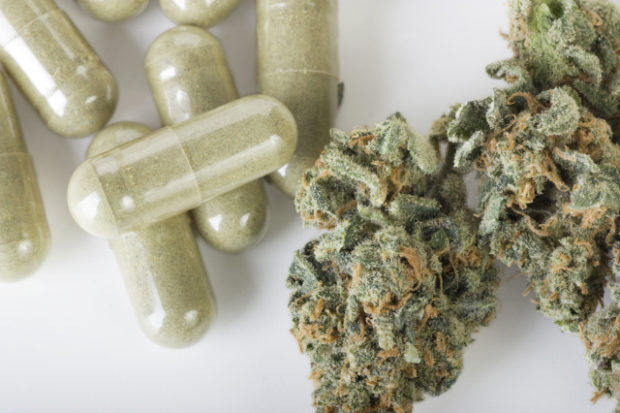
Image: Istock.com/cheche22
Legalized in Canada last fall, edible cannabis products pose specific health hazards and require targeted prevention messages, say researchers at the University of Toronto.
Since December, cannabis-based food products have been available for sale in Canada. The North American country, which legalized recreational cannabis in October 2018, has thus taken another step towards the free use of marijuana.
Cookies, chocolate, soluble powder, herbal teas… Edible cannabis comes in various forms. When they were introduced, measures were taken to protect vulnerable members of society, such as a ban on cannabis lollipops (which might attract children), neutral packaging and a ban on alcohol in drinks containing cannabis.
Now Canadian researchers at the University of Toronto have made additional recommendations in an article published in the Canadian Medical Association Journal. “Although edibles are commonly viewed as a safer and more desirable alternative to smoked or vaped cannabis, physicians and the public should be aware of several risks related to the use of cannabis edibles,” warn the researchers.
Cannabis edibles can induce effects that may be delayed, but which can also last much longer
In particular, the authors of the article point out that ingested cannabis can take up to four hours longer than inhaled cannabis to produce noticeable effects, which could lead to excessive consumption of edibles. Moreover, effects that take a long time to take hold can also require up to eight hours for the body to eliminate them, which can lead to longer periods of impaired judgment than inhaled cannabis.
The scientists behind the paper also call for greater vigilance with regard to children and pets, who could mistake cannabis products for candy or snacks. They also point out that a recent Canadian report found that young people attribute positive effects on sleep, mood and anxiety to edible forms of cannabis, which are contrary to those observed in real life.
“Physicians should routinely question patients who ask about cannabis about their use or intended use of edible cannabis products so that they can counsel these patients regarding child safety, potential for accidental overconsumption and delayed effects, and potential for interactions with other substances such as alcohol, benzodiazepines, sleeping aids and opioids,” warn the authors of the publication. RGA
RELATED STORIES:
Teacher smokes marijuana in front of class, gets fired
Brazil approves sale of medical cannabis in pharmacies